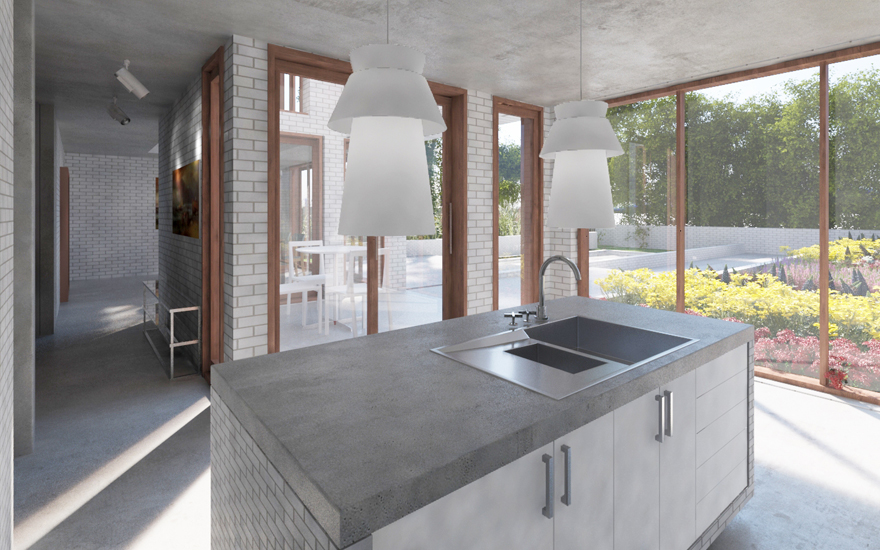A typical residential project from concept to completion
Carrying out a residential project can seem like a daunting proposition, from designing a scheme and acquiring planning permission to overseeing construction. To help you understand the advantages of appointing a RIBA Chartered Architect, this month we walk through a typical residential project and explain our role in this process.
Whether your proposal is a unique, new-build home or you wish to renovate an existing building, an architect will be able to supervise and oversee a project from an initial draft design to the completion of construction. This blog has been written to describe how an architect can add value to your project, and lead the way for its successful delivery. It gives an introduction to the services that an architect is able to provide and also the terms of a client-architect agreement
Appointing an architect
A good working relationship with your architect is crucial for delivering a successful project. It is advisable to choose an architect with experience and a style which is relevant to your project and ambitions, and a track record of successful planning applications within the local authority.
At the outset, the architect will meet with you, the Client, to understand the vision you have for your home, ascertain your budget and discuss your requirements.
An architect’s fees vary depending on the location, how complex the project is, and how involved you would like the architect to be during construction stage. How much you use an architect is up to you: you may need some general advice, a selection of initial sketches or more detailed drawings, or on-site support when the construction starts. It is important that you and your architect discuss and agree on the cost and scope of the services that will be provided, before the project begins. RIBA (the Royal Institute of British Architects) recommends that the agreements you make at the outset are put in writing (you can use the RIBA Agreement forms, if you wish).
The stages for projects are well represented by RIBA Plan of Work 2013, as follows:
Stage 0 Strategic Definition
Stage 1 Preparation and Brief
Stage 2 Concept Design (Initial Options)
Stage 3 Developed Design (Planning Submission)
Stage 4 Technical Design (Building Regulations and Tender Issue)
Stage 5 Construction (Contract Administration and Contractor Queries)
Stage 6 Handover and Close Out
Stage 7 In Use (Post Completion Building Performance Monitoring)
For more detailed information, see the Plan of Work on the RIBA website.
Following the initial meeting, an architect will help you as Client create a Client Brief, which considers the existing condition of the building (if renovation and/or extension), design and function of the proposals. Initial sketch options would be drawn up for your approval, before ideas are developed further, and overall project timings and a budget would also be defined.
When you have approved the initial sketch options, more detailed drawings would be produced. Safety guidelines and building regulations would be incorporated into the design, with floor plans including discussions with a Structural Engineer and Mechanical & Electrical Engineer (for larger more complex projects). Further discussion would take place about the fine detail of the design, including sustainability, daylight, lighting, storage, and ergonomic functionality. Once you are happy with the final design, the architect will help you to navigate the planning approvals required before the project can begin, including the preparation of planning applications to the local authority where needed, and building regulations approval.
If you do not have a construction/building company in mind, an architect can put the project out to tender on your behalf, awarding the project to a general contractor. Once construction begins, an architect can act as an intermediary between you and the builders, contractors and interior designers (where applicable) and other consultants (landscape architect, audio visual specialist, kitchen specialist, lighting specialist, etc). The architect will also inspect the construction work (if included in their appointment) in terms of meeting the standards required, and delivering the project on time and within budget.
An architect is qualified to manage the whole project, interpreting your ideas, solving any problems that may arise, and ensuring that you are happy with the overall finished product.
Please see here to view some of our recent residential projects, or visit us at our studio to see our full portfolio of work.

